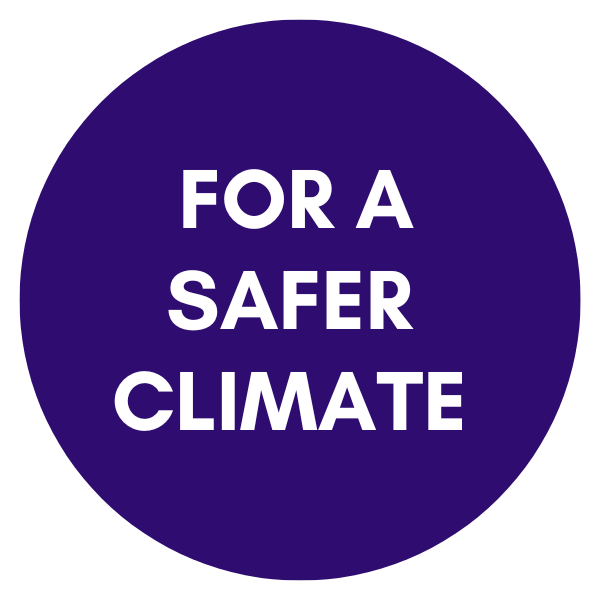Safety/Climate/Environment
A Workshop on Building Transdisciplinary Collaboration toward a Safer Climate
In this one-day workshop, organized by Safer Climate in collaboration with Historians without Borders in Finland and Rauhanlähettiläsakatemia (Peace Ambassador Academy), we look at the connections between climate change, the environment and security from a transdisciplinary perspective. The event is a part of the 4th annual Impact Week of the ACCC-flagship, organized in Cultural Center Sofia in Vuosaari, Helsinki, 22-25.4.2025.
You can follow updates and see the detailed schedule closer to the event on this website.
We welcome researchers, civil society organization representatives, private sector actors, security experts, activists and artists alike to share information, find new approaches and explore collaboration opportunities. How do researchers in natural sciences and humanities/social sciences approach issues related to climate security? What kind of examples and possibilities are there for adopting a truly comprehensive security - or safety - approach that includes research, civil society engagement, social justice and psychosocial safety? How are climate change, the environment and conflicts related? What can we learn for the future from taking a historical perspective?
Climate change causes and multiplies risks that vary from extreme weather phenomena to worsened social injustices, political tensions, and beyond. To cope with these changes and uncertainties, it is important to discuss different understandings of security, safety and preparedness in relation to climate change and research. Different actors such as universities and research institutes, the European Commission, NATO, the OSCE and numerous humanitarian and non-governmental organizations are working with issues related to climate and security. Scientists are gathering and analyzing complex data about the effects of war on climate and the environment but often there exists no shared language or forum around the topic for different actors.
The increased tendency to discuss climate change and the environment in the security context has also raised concerns about increasing securitization and militarization of climate change and the environment. The session invites participants to explore critical takes on security and related issues such as economic and colonial power dynamics.
The consists of invited expert presentations and joint group discussions. Note: this session is on-site only and follows the Chatham house rule. Discussions will be documented (anonymously) and proceedings of the session will be shared with the participants after the event.
Program
10.00 – 12.00 Session 1: Science in the time of conflict and peace
Assessing the Effect of the War in Ukraine Using Satellite Data
Iolanda Ialongo
Senior research scientist, Earth Observation Unit Finnish Meteorological Institute
How to find solutions to increase the dialogue and participation of the Sámi people in the impact assessment phase?
In collaboration with Rauhanlähettiläsakatemia. PeaceLabs projects working group: Sara Vanhanen, Iida Pyykkö, Kide Rinne
Elina Mikola
Advisor, Climate and Environment
Amnesty Finland
12.00 - 13.00 Lunch and networking
13.00 - 14.00 Plenary by Prof. Markku Kulmala for all Impact Week Participants
14.00 – 16.00 Session two: What can history teach us about climate and security? Finding pathways for environmental science and action in oppressive systems
Hosted by Historians without Borders in Finland
Bradley Reynolds
Researcher, Political History, University of Helsinki
Board member, Historians without Borders in Finland
Elena Holmgren
Doctoral Researcher, Doctoral Programme in Political, Social and Regional Changes, University of Helsinki
Other speakers tbc
Short presentations will be followed by discussion in groups


